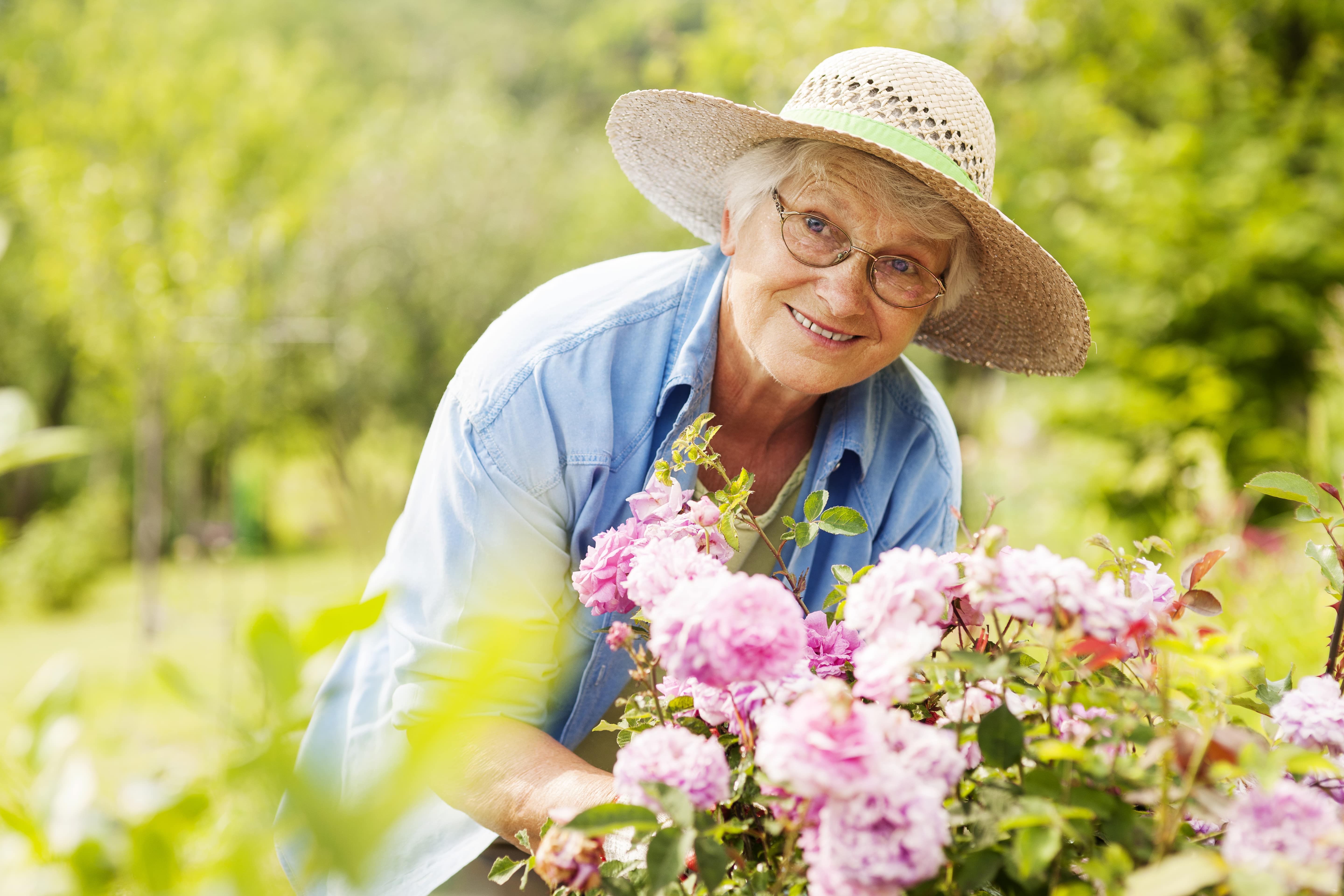Asset Publisher
Activities for a Loved One with Dementia: Gardening
06/11/2019

An older adult enjoying time in the garden
Gardening can be a wonderful activity for older adults with Alzheimer's or other memory disorders and their families. According to experts who diagnose and treat memory disorders, gardening activities often have a positive effect on the physical, mental and emotional health of older adults. An afternoon of fresh air and sunshine in the garden can help improve a loved one’s appetite and help them sleep better at night. Watching new plants begin to grow and bloom under their care can also give them a sense of pride, accomplishment and enjoyment at the flowers, fruits and vegetables they were able to grow with our help.
Whether a loved one enjoyed gardening in the past or is trying it for the first time, it’s important for us to support them by understanding how to help them plan and maintain their garden. Here are some tips to help get us started:
1. Gather information
If this is the first time a loved one has tried gardening, there are several resources we can turn to for information, including:
- The local Cooperative State Research, Education, and Extension Service provided by the United States Department of Agriculture. This office can provide us with useful information about soil conditions, common garden pests, the best times to plant or harvest fruit and which flowers or vegetables thrive best in our area. Some extension services also have Master Gardeners, specially trained volunteers who can answer your questions about plants and gardening by phone at no cost. There are online locators available to help us find the Extension Office closest to our area.
- Garden centers and nurseries
- Bookstores and local libraries
- Local gardening clubs
If a loved one enjoyed gardening in the past, it may be helpful for us to encourage them to tell us the steps of gardening they remember, or teach us how to do small gardening tasks. This can help build upon their existing strengths and skills, improve their task-based memory and reduce their mental and emotional strain.
2. Find a location
When determining a location for our garden, we should consider choosing a small plot with good soil as close to the house as possible. A location with an outdoor faucet nearby would also be ideal so that we can water our plants with greater ease. Storing garden tools and supplies close to the garden or toting equipment around the yard in a garden cart or wagon may also decrease the time we need to set up before beginning our work. If a loved one uses a wheelchair, we can also place tools in a bag or basket on the back of the chair for easy transport.
If a loved one can no longer care for a big garden or lives in an apartment or assisted living facility, we may want to consider container gardening. Bulbs, seeds and cuttings from other plants can be grown in window boxes, flower pots, cans, large clay pots or other available containers. However, we should be aware that potted plants can dry out quickly and need frequent watering, especially in hot weather, so we may want to choose plants that grow well in dry soils when container gardening.
3. Create a schedule
In order to stay on task when working in the garden, we may want to plan ahead about what we want to accomplish before beginning the day's gardening project. When we create our schedule, we should take into account our loved ones energy and condition, and break big chores into smaller tasks to prevent possible injuries or fatigue. We should also plan for frequent time outs to sit quietly, enjoy the fresh air and sunshine, sip some water, eat a snack and watch the birds, bees, bugs, worms, butterflies and other garden visitors.
Even if we create a schedule, we should keep in mind that some jobs may be much more strenuous than we anticipated. We should not hesitate to stop before the tasks are completed if a loved one is tired or there are unexpected changes in the weather.
4. Wear protective clothing
Before beginning work in the garden, we should make sure to apply sunscreen and put on protective clothing or hats to avoid sunburn. If a loved one is able to work directly in the soil of the garden, we should encourage them to wear thick work pants or overalls that cover their knees. Gardening gloves made of thick cloth or rubber should also be worn to protect hands from dirt, thorns or scratches.
Once all of our preparations are complete, the next and most important step is to enjoy some quality time together with our loved ones. Gardening can give us an opportunity to create something beautiful, while also providing us a way to spend a fun afternoon together.
Related Assets
Suggested Reads
Bringing Exercise to Dementia Care
As caregivers, it can be challenging to keep a loved one engaged in healthy activities because of a lack of endurance, soreness or general lack of interest. Yet encouraging loved ones to participate in these activities can be important to improving their healt...
Engaging Activities for People with Dementia: Boosting Wellbeing and Connection
Dementia remains a highly stigmatized disease, often leading to misunderstandings about the capabilities and needs of older adults affected by it. Caregivers may unintentionally overlook the importance of meaningful hobbies, activities, and pastimes for indivi...
